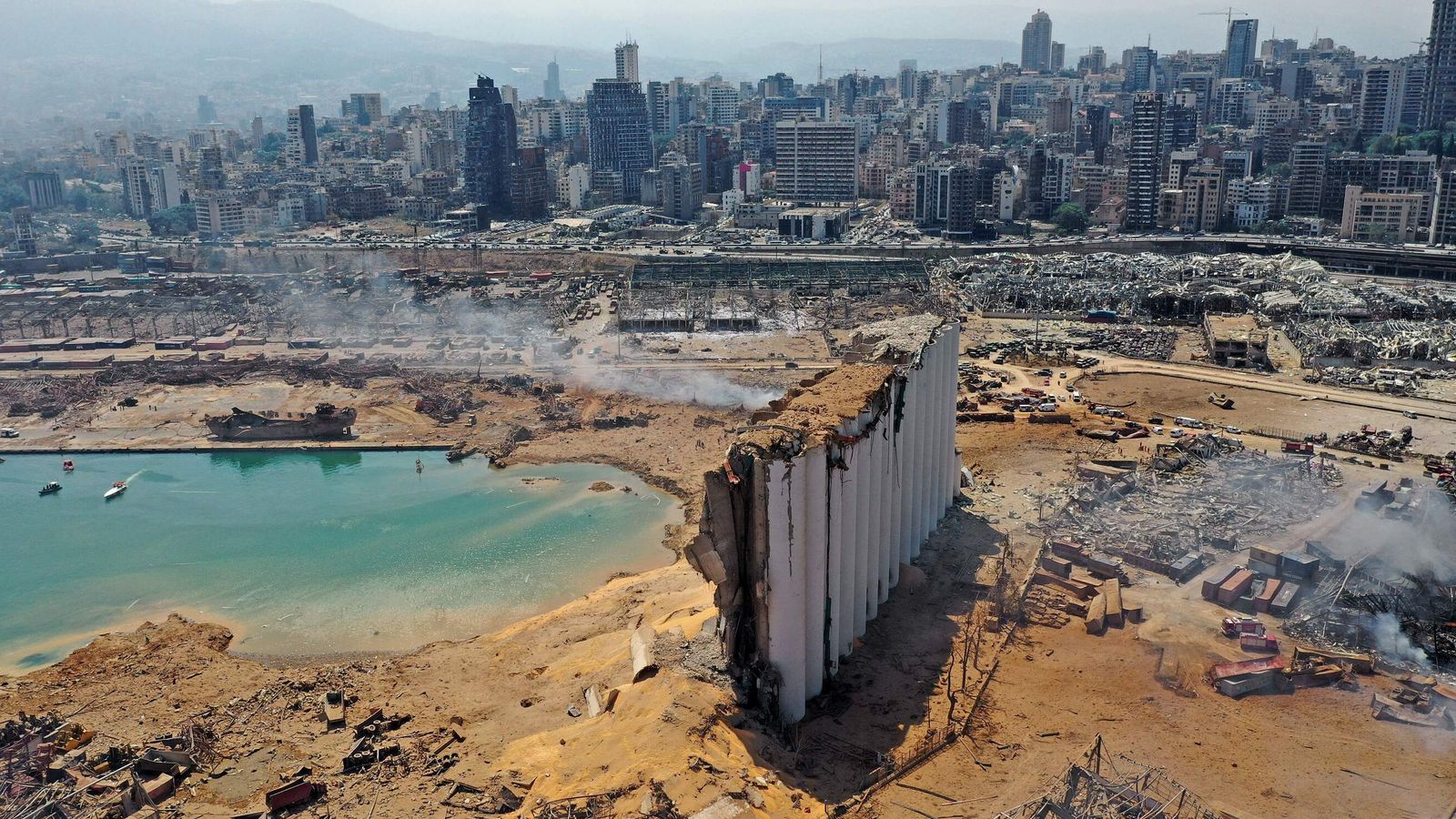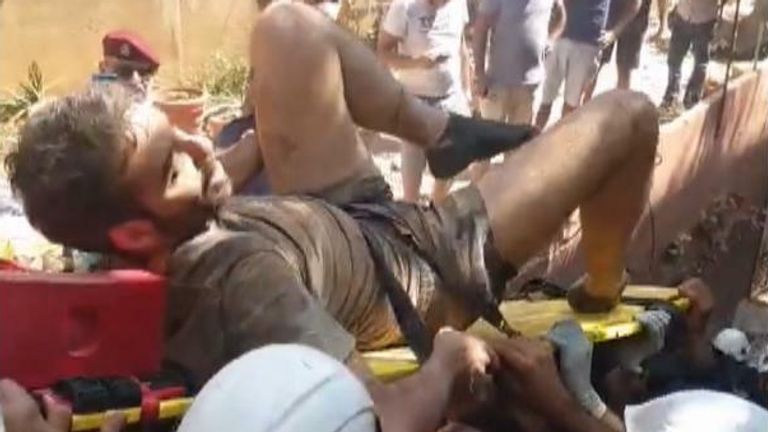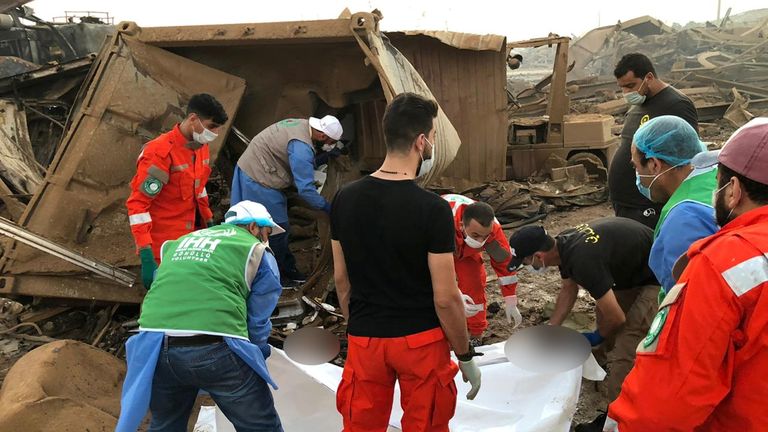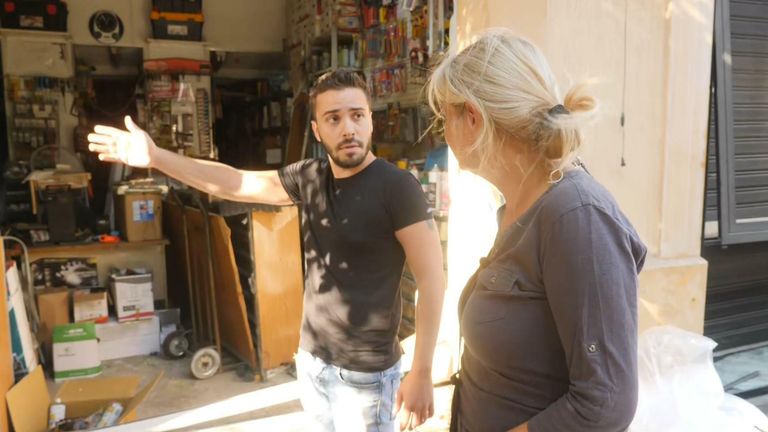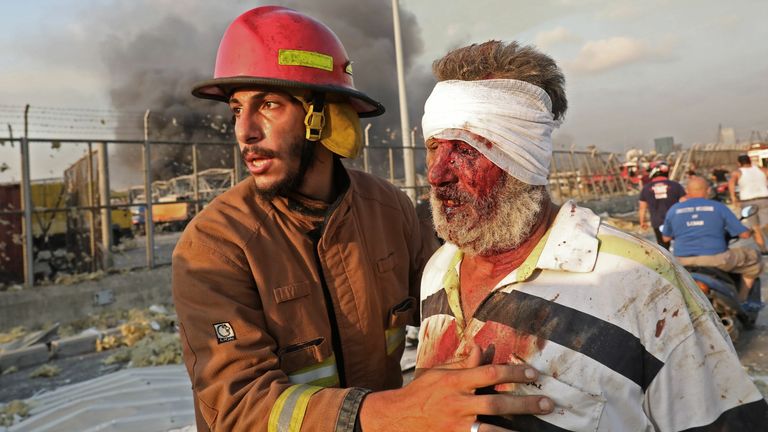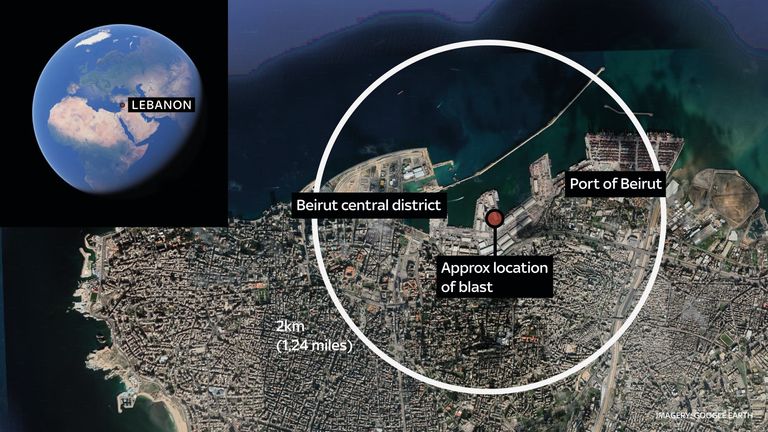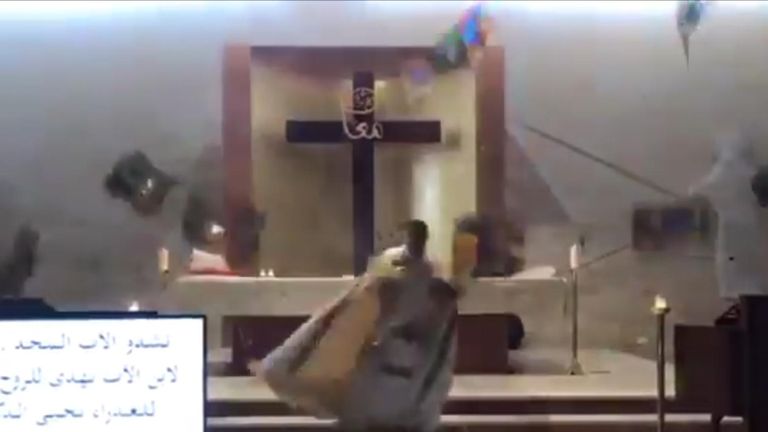The number of dead in Beirut’s huge explosion has risen to 135, with around 5,000 injured and tens of people still missing as rescuers search for survivors, say Lebanese officials.
President Michel Aoun said the blast was caused by 2,750 tonnes of ammonium nitrate – used in fertilisers and as an explosive – which was left in a warehouse for six years at the city’s port.
The cabinet has ordered port officials involved in storing or guarding the material since 2014 to be put under house arrest.
A two-week state of emergency in Beirut has been announced by the cabinet as the disaster is investigated.
Britain has pledged an immediate aid package for Lebanon up to £5m.
Foreign Secretary Dominic Raab said: “We are ready and now poised to deliver medical experts, humanitarian aid of £5m, search and rescue experts.
“We have also got a Royal Navy survey ship in the area which can be deployed to help assess the damage to the port.
“All of that is ready to go, obviously we will make sure we have got exactly what is tailored towards the Lebanese needs.”
The UK is ready to send up to 47 search and rescue experts and medical experts to help with the response, along with search and rescue dogs.
The head of Beirut’s port, Hassan Koraytem, said the highly-explosive material blamed for the powerful blast came to be stored there six years ago because of a court order, local broadcaster OTV reported.
The general manager reportedly said that the customs department and state security had asked authorities for the material to be exported or removed, but “nothing happened”. It was unclear to whom the requests were made.
Residents woke on Wednesday to a scene of devastation, shocked by the magnitude of the destruction.
Pictures showed cars upturned and streets covered in shattered glass and twisted metal, with buildings reduced to rubble.
Up to 250,000 people have been left homeless and families are still counting the casualties and searching for the dead.
Many people spent the night going from one hospital to another, desperate for any news about missing loved ones.
Prime Minister Hassan Diab declared a day of mourning and pledged those responsible would “pay the price”.
He said his country was experiencing “a real catastrophe” and appealed to other nations for help.
The blast struck with the force of a 3.5 magnitude earthquake, according to Germany’s geosciences centre GFZ, and was heard and felt as far away as Cyprus – more than 125 miles (200km) across the Mediterranean.
A mushroom cloud could be seen spreading over the city.
“L’Apocalypse,” read the front page of Lebanon’s French L’Orient-Le Jour newspaper. Another paper, al-Akhbar, had a photo of the destroyed port with the words: “The Great Collapse.”
Those who felt the blast said they had never experienced anything like it.
“It was a real horror show. I haven’t seen anything like that since the days of the [civil] war,” said Marwan Ramadan, who was about 500 metres from the port and was knocked off his feet by the force of the explosion.
The intensity of the blast threw victims into the sea and rescue teams are still trying to recover bodies.
“It was like a nuclear explosion,” said Walid Abdo, a 43-year-old school teacher.
Lebanon was already on the brink of collapse amid the coronavirus outbreak and an unprecedented economic crisis that had triggered mass protests in recent months.
Its hospitals, already buckling under a surge in COVID-19 infections, are now overflowing and struggling to cope with the influx of those injured in the blast.
Doctors and nurses have been forced to treat some of those hurt on the streets outside, while at the same time trying to keep coronavirus patients separate from the constant new arrivals.
Lebanon’s main grain silo was also destroyed in the blast, leaving the country with less than a month’s reserves but still enough to avoid a crisis, economy minister Raoul Nehme said.
Offers of assistance have been pouring in from across the world, with France, Germany, Canada, Bangladesh, Israel, Russia, Jordan, Qatar, Kuwait and Iran among the many countries pledging support.
This includes planeloads of humanitarian aid, rescue teams, medical staff and supplies, as well as field hospitals.
“It’s like a war zone. I’m speechless,” said Beirut’s mayor Jamal Itani, while inspecting damage he estimated ran into billions of dollars.
“This is a catastrophe for Beirut and Lebanon.”
